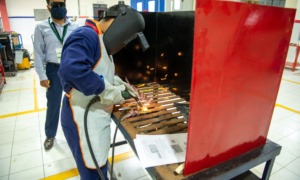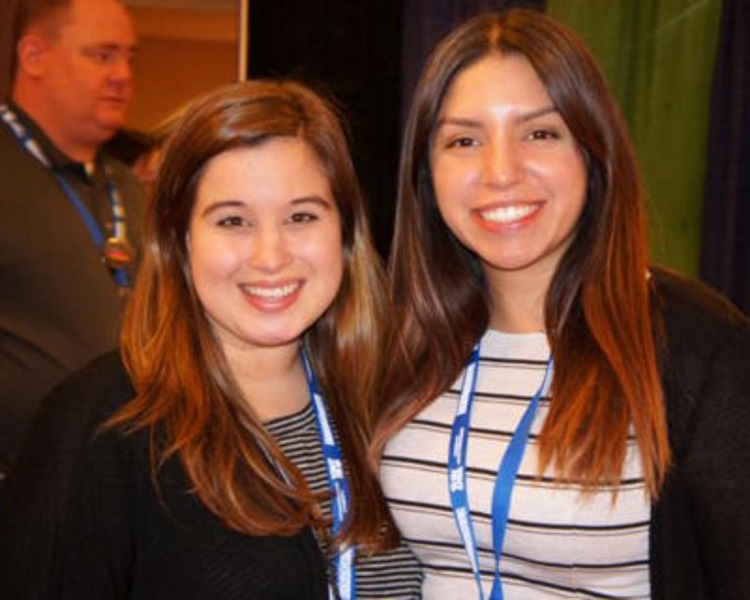
Photos by Stell Simonton
Jessica Sandoval and Amy Guerrero
ATLANTA — About 1,800 after-school professionals attended workshops on social and emotional learning, effective approaches to STEM, creating high-quality programs and many other topics at the National Afterschool Association (NAA) Convention Sunday through today in Atlanta. Youth Today reporter Stell Simonton asked them what challenges their programs faced and what they got from the convention.
Jessica Sandoval, Extend-A-Care for Kids, Austin, Texas
One of our biggest challenges is staff retention and making sure we’re working with staff who have the appropriate background and experience and who meet the qualifications that we’re looking for. I’ve gone to a lot of professional development sessions and leadership sessions and I’m taking away a lot of professional development ideas and training that I can do with my staff.
Amy Guerrero, Extend-A-Care for Kids, Austin, Texas
What’s new for me is that I have middle schoolers in our program now. [The challenge is] to help them engage and want to be in our program as opposed to wanting to be home. I did do a session [at the convention] that was amazing and [provided information on] free resources we could use, how to engage with them and how to be relevant.
Jasmine Couch-Murray, the Y Central Maryland, Baltimore
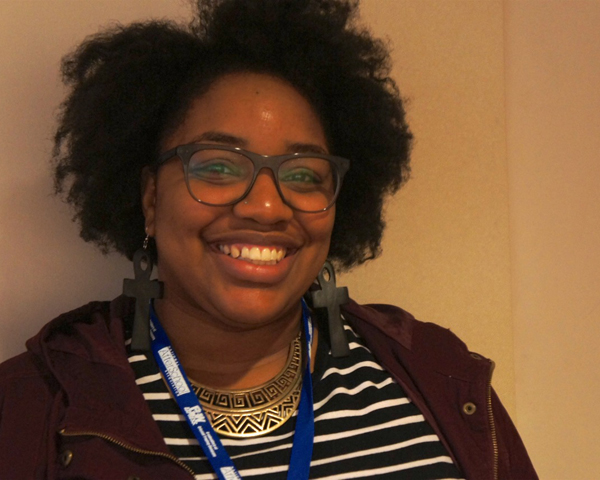
Jasmine Couch-Murray
We have after-school programs in Baltimore City Schools. For my program at Johnston Square, I serve K-5, 70 students.
I think the session we just had with Byron Garrett [chairman of the National Family Engagement Alliance] was extremely empowering, and I connected a lot with the messages he was saying. Especially the $100 race video he showed [which illustrates inequality] …
Some of the things that were in [it] were: Have you ever worried about where your next meal was coming from? Have you ever had to help in the household to pay bills? Are your parents still together?
Those are all questions that I have for my students. In our program we serve dinner every day, so that’s one thing that we do. We give academic support for an hour, whether it’s literacy or math. We’re constantly trying to push our kids, to give them opportunities that they wouldn’t normally have. We’re in a very low-income area. Our poverty rate is extremely high so our program’s extremely empowering in our community.
Alexandra Mazuera, Hispanic Unity, Broward County, Florida
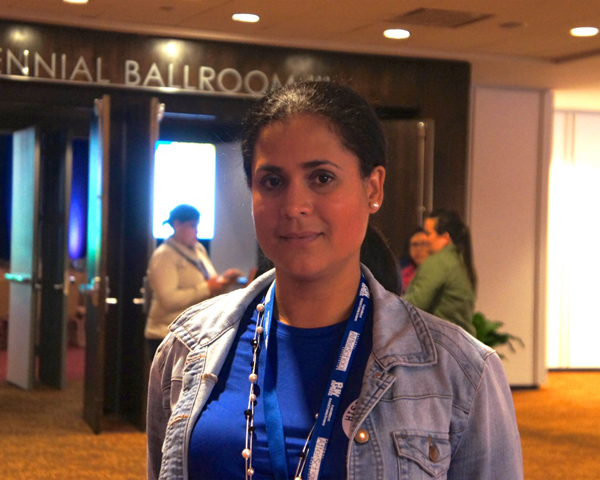
Alexandra Mazuera
I have seen plenty of resources. For example, DimensionU is a video game that we’re going to go back home and look into. While the kids are playing they’re also learning math and reading. So it’s something we are planning to utilize. … It’s a disguised way of studying.
Meg Blinkiewicz, Kalamazoo (Michigan) Youth Development Network
I’m with an intermediary in Kalamazoo County and we work with 45 organizations. We’re really taking a deep dive into a collective approach to summer programming.
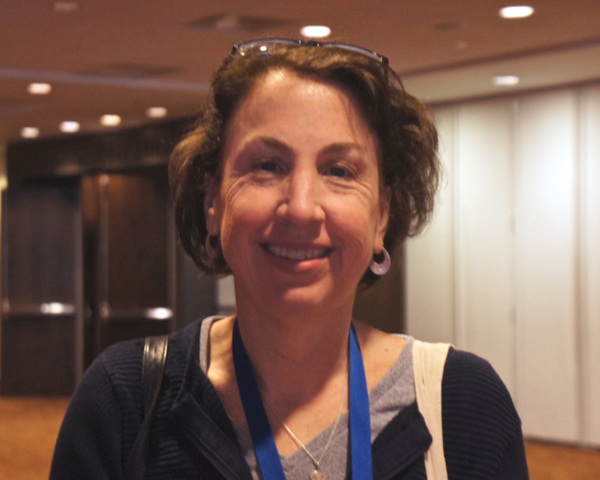
Meg Blinkiewicz
I went to the High-Quality Service Learning session this morning and it’s really going to help us take a neighborhood two-generational approach to service learning.
It was a really great theory-to-practice session that gave us the theory behind it, the model, the framework. We did a hands-on example.
So I’m going to be able to take this back, and in three neighborhoods we’re going to have a two-generational, family-driven, youth-driven approach to service learning. So we’re really excited.
Terry Tso, Pinon Community School 21st Century Coordinator, Pinon, Arizona
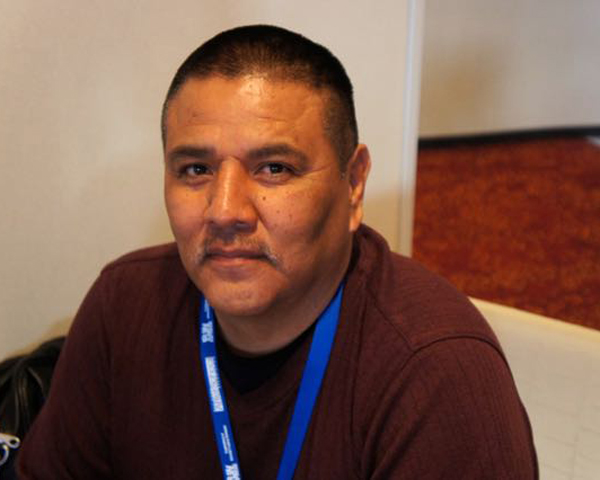
Terry Tso
I’m with Pinon Community School in Arizona in the Navajo Nation. Parental support is something of a problem. I like the different ideas [from the convention] that I can go home and use. … food, games and bringing in presenters that address both the parent and child together … fun games that parents could kind of get into — bingo and different things like that. Not like lectures … but a different approach.
The common theme I’m hearing [in both rural and urban after-school programs] is lack of parental support. That seems to be everybody’s frustration.
The grandparents I work with don’t speak English but I know we can incorporate [things] that they can understand. …. We have a lot of grandparents that take care of the kids that we serve. … I’m thinking how can I infuse the Navajo language and Navajo way into the program.
Kate Walker, Journal of Youth Development editor, University of Minnesota Extension
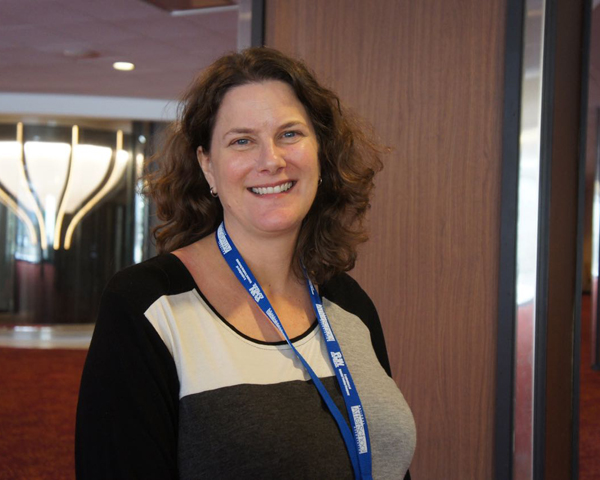
Kate Walker
What’s beneficial for me is getting to talk to practitioners and hear what are the issues that matter to them so we’re making sure the journal is responsive to their needs and relevant for their practice.
The interesting session I was a part of yesterday was about bridging research and practice. It’s the idea of how do we do research that is most relevant and useful for practice, and how do we have practitioners playing a role, setting the agenda and being partners in conducting the research and writing it up.




